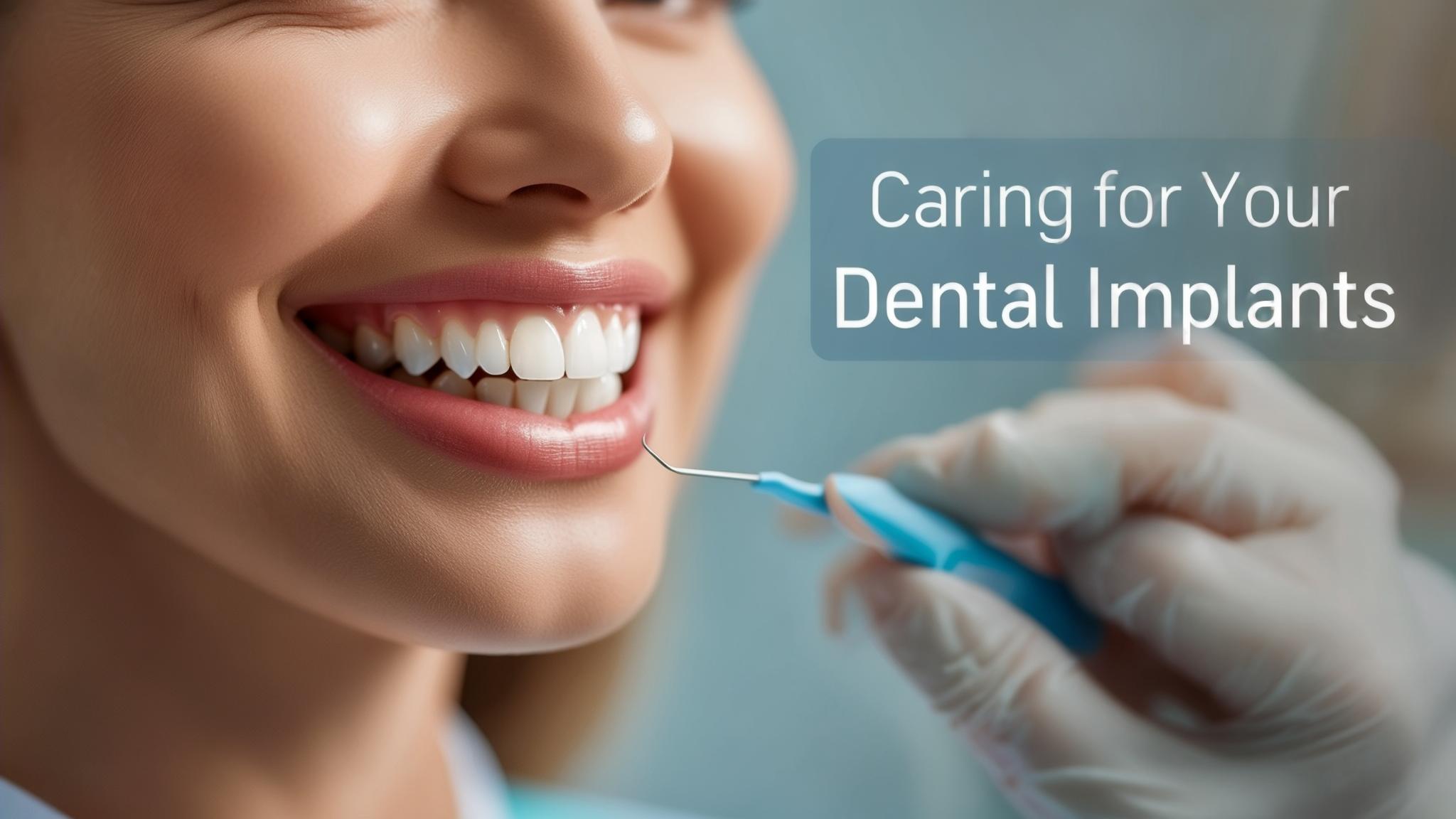Understanding Dental Implants
Dental implants are a popular solution in restorative dentistry, offering a permanent and natural-looking option for replacing missing teeth. They consist of three main components:
- Implant Post: This is a small titanium screw that is surgically placed into the jawbone, acting as a root for the new tooth.
- Abutment: This connector piece is attached to the implant post and supports the crown.
- Crown: The visible part of the implant, designed to look and function like a natural tooth.
Dental implants work by integrating with the jawbone through a process called osseointegration, providing a stable foundation for the replacement tooth. Compared to other restorative options like dentures or bridges, implants offer superior durability, comfort, and a more natural appearance.
Importance of Dental Implant Maintenance
Maintaining your dental implants is crucial for their longevity. With proper care, implants can last a lifetime, but neglect can lead to complications. Good maintenance not only preserves the implant but also contributes to overall oral health by preventing gum disease and bone loss. Financially, investing in regular maintenance is far more cost-effective than dealing with potential failures or replacements.
Daily Care Tips for Dental Implants
Oral Hygiene Practices
- Brushing Techniques: Use a soft-bristled toothbrush and brush gently around the implant. Electric toothbrushes can also be effective.
- Toothbrush Types: Choose toothbrushes with small heads to reach around the implant.
- Fluoride Toothpaste: Essential for preventing decay and maintaining healthy gums.
Flossing and Interdental Cleaning
- Types of Floss: Use implant-specific floss or unwaxed floss to clean around the implant.
- Interdental Brushes/Water Flossers: These tools can effectively clean between teeth and around implants, reducing plaque buildup.
Rinsing with Mouthwash
- Antimicrobial Mouthwash: Helps control bacteria and maintain gum health.
- Avoid Alcohol-Based Rinses: These can dry out the mouth and irritate the gums.
Regular Dental Visits
Professional cleanings are vital for removing tartar and monitoring implant health. Regular check-ups, typically every six months, allow your dentist to spot potential issues early and keep your implants in top condition.
Lifestyle Considerations
Diet and Nutrition
- Foods to Avoid: Hard or sticky foods that could damage the implant.
- Nutrients for Oral Health: Calcium and vitamin D support bone health, while vitamin C promotes gum health.
Avoiding Harmful Habits
- Smoking: Increases the risk of implant failure and gum disease.
- Grinding Teeth (Bruxism): Can damage implants; consider a night guard if you grind your teeth.
Protective Measures for Sports
- Mouthguards: Essential for protecting dental implants during physical activities.
Recognizing Signs of Implant Issues
Be vigilant for signs of implant problems, such as:
- Infection: Redness, swelling, or pus around the implant site.
- Implant Failure: Loosening of the implant or persistent discomfort.
Symptoms to Watch For:
- Pain or Discomfort: Unusual sensations around the implant.
- Swelling or Inflammation: Persistent swelling that doesn't subside.
Prompt action is crucial if you notice any of these symptoms. Contact your dentist immediately to address any potential issues.
Conclusion
Maintaining your dental implants is a commitment to your oral health and your smile's longevity. By adopting good habits and being proactive about care, you protect your investment and enjoy the benefits of a healthy, beautiful smile for years to come. Remember, your dentist is your partner in this journey, so don't hesitate to reach out for guidance and support.

